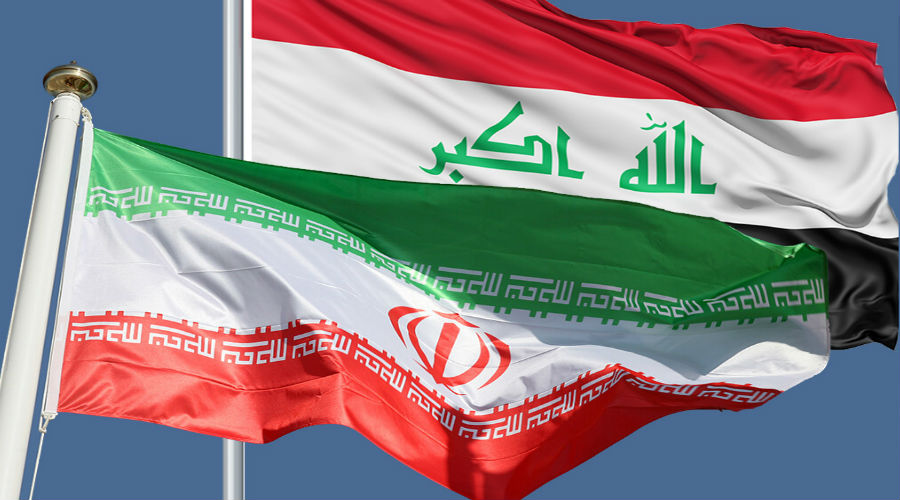Iran announced that the Revolutionary Guard’s missile strikes at the Democratic Party of Iranian Kurdistan (PDKI) base in Koya, northern Iraq, on September 9, 2018, came in response to the latter’s attacks inside Iran. However, this move cannot be divorced from the current escalation with the US over Iran’s nuclear program and regional role, as well as the continued internal protests in Iran. The protests have erupted due to the government’s failure to contain the repercussions of the spiraling economic crisis, following imposing the first batch of US sanctions on August 7, 2018, which will be followed by another one on November 4, to cut, if not halt, Iranian oil exports.
Multiple Messages
Remarkably, the timing of missile attacks on the headquarters of the PDKI coincided with the continued internal protests and external pressures, in which the new policy of US president Donald Trump on Iran plays a major role.
By launching these strikes at this particular time, the Iranian regime seeks to achieve two main objectives. The first is to draw the attention of the Iranians to what the regime claims to be a “foreign conspiracy to undermine its foundations”, led by outside forces in collaboration with armed groups at home and abroad.
Recently, the Iranian regime has begun to promote that the whole range of actions taken by the US towards Iran is only a psychological war to pressure Tehran to cave in to President Trump’s call for negotiations, to reach a new deal that tackles the various contentious issues between the two parties.
In other words, through these allegations, the regime attempts to obscure the real causes of the internal and external crises facing the country, which arise primarily from its policy that is based in the first place on depleting the Iranian treasury in support of terrorist organizations abroad, particularly in Syria, Lebanon, Iraq and Yemen.
However, these allegations no longer gain particular importance and momentum at home, as some protest groups seemed to be aware of the dire consequences of the regime’s roles abroad, especially in crisis-ridden countries, a matter was evident in the slogans raised by protesters.
Yet, what was striking is that the slogan “Death to Hezbollah!” has begun to feature heavily in the protests in some cities, even those that have a prestigious religious status in Iran, such as Qom, which conveys a direct message of great significance to the regime, that its persistence in pursuing its current policy will aggravate the internal crisis and increase the scale of protests to such extent that they may not be contained with the current mechanisms.
Veiled Threats
The second objective is to convey a direct threatening message to the US that Iran has the military capability to harm US interests in the region, particularly in neighboring countries, such Iraq.
That may help explain why Iranian Revolutionary Guard Commander Mohamed Ali Jafari was keen on September 13, 2018, to underline that “Iran has a surplus of high-precision missiles that can hit targets at a range of 2,000 kilometers”, warning that “Those who have forces, base and equipment near and in the 2,000-km around Iran should know that all IRGC missiles are highly precise”.
Certainly, Iran does not seek a direct military confrontation with the US or any other power, as it has always been keen to avoid this option because of its dire consequences. But, it rather asserts that it has the capacity to raise the cost of any military action in the coming period. However, Iran’s continued claims about its military capabilities have not been put to real test, to demonstrate the credibility of such statements.
Remarkably, Iran’s latest missile strikes on northern Iraq came after it had quickly denied reports that it had moved ballistic missiles to Iraqi militias, which means that it wants to underline that it has the military capabilities to target the interests of any party which may attack it from its territory, and not from the neighbouring countries.
Nevertheless, this does not negate that inciting its loyal militias in crisis-ridden countries to target such interests will remain an option for it, especially as it adopts the proxy war policy, not to mention that this would serve its goal of raising the cost of any military action against it.
This cannot be dissociated from the threats made by some Iraqi militias to attack the US forces in Iraq, such as the Iraqi Kata'ib Hezbollah (Hezbollah Brigades). In response, Washington has directly warned Iran, on September 11, 2018, that it will “respond swiftly and decisively to any attacks by Tehran’s allies in Iraq that result in injury to Americans or damage to US facilities”, accusing Iran of not preventing attacks on the US Consulate in Basra and the American Embassy compound in Baghdad.
This has coincided with the emergence of reports, one day later, which revealed that Republican senators are ready to introduce new legislation to impose terrorism-related sanctions on pro-Iranian militias in Iraq and oblige the US secretary of State to present a list of militias receiving support from the Iranian Revolutionary Guards.
Mounting Pressures
This Iranian policy could have other consequences that may undercut its ability to cope with US pressure. The attacks may push some international powers, which are still eager to maintain channels of communication with Iran, to change their policy to focus on the dangers of Iranian interventions in the region, rather than saving the nuclear deal.
In the same vein, France criticized the Revolutionary Guards’ missile strikes against the PDKI positions in northern Iraq, prompting Tehran to accuse Paris of adopting “double standards” because of its silence over the attacks on Iran’s interests in Iraq, according to the remarks of the Iranian Foreign Ministry spokesman Bahram Ghasemi on September 13. In conclusion, such Iranian moves could widen the rift between Iran and the countries concerned with the nuclear deal, putting the deal in great peril.


